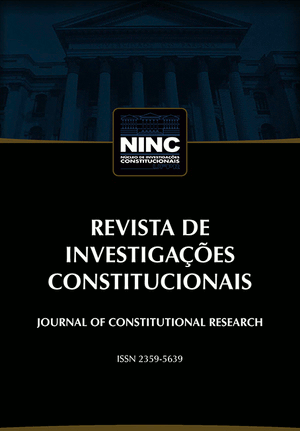Abstract
The balance of powers is not the result of the simple distribution of legislative, executive and judicial powers among the authorities that make up the branches of public power, but is the result of the correct distribution of powers that allow for reciprocal control among these authorities. Thus, the excesses of one of the authorities of the State can be balanced, if the other authorities have sufficient powers to allow them to oppose them. However, if a strict theoretical analysis is made in law of the Colombian constitution, it is observed that the congress does not have sufficient powers to control the government, because it does not have the capacity to control budget.
Keywords:
branches of government; separation of powers; checks and balances; hyper-presidentialism; abuse of power
